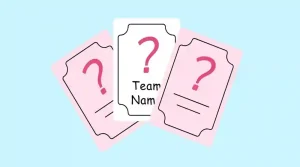Alright, so here we are, diving into the wild world of slang — and today, the star of the show is gyatt. If you’ve been hanging around TikTok, Twitter, or just that one group chat where everyone suddenly starts sounding like they’re from a secret society, you’ve probably stumbled on this weird little word. But what does gyatt even mean? And how did it blow up so fast?
Honestly, I was just as lost at first. It felt like everyone was tossing the word around like it was some ancient secret code. I remember asking my cousin, who’s usually the slang guru, “Dude, what the heck is gyatt?” and he just smirked like I was from another planet. So, I took it upon myself to unravel this mystery for both of us — and you’re lucky because now you get the full scoop.
What Does Gyatt Mean?
Let’s start with the basics. You might’ve heard gyatt thrown out in comments, videos, or even memes. So, what does it mean?
The Simple Definition
Gyatt is a slang term mainly used to describe a person, typically a woman, who has an exceptionally attractive or voluptuous backside. In other words, it’s a cheeky way to compliment someone’s curves, especially the derriere.
Yeah, I know. It’s kind of specific. But that’s the internet for you — always finding new ways to say the same old things, but with a twist.
Origins: Where Did Gyatt Come From?
Here’s where it gets a little foggy. The exact origins of gyatt are a bit murky, but it’s believed to have evolved from a shortened, slangy twist on “goddamn” or “goddammit.” Yeah, weird, right? How do you go from a swear word to a compliment? Internet slang has a strange logic of its own.
Some folks say it sounds like a slurred “goddamn,” but with a fun, positive spin. Like, instead of cursing, you’re just admiring someone’s looks — “Gyatt, look at that!”
The word gained traction on TikTok, especially in videos where users would react to people or situations with awe or admiration — usually related to physical appearance.
How Did Gyatt Go Viral So Fast?
Okay, now here’s the juicy part. The internet is like that one kid in class who suddenly becomes popular overnight after doing something silly but catchy. Gyatt had its moment just like that.
The TikTok Effect
If you’ve ever spent a minute scrolling through TikTok (which, let’s be honest, is way longer than a minute), you know how quickly phrases catch fire there. A single viral video can launch a thousand memes and slang words.
Gyatt became a staple in reaction videos. People would say it loudly or exaggerate it for comedic effect, making it hilarious and catchy. The word’s weird sound — it’s punchy, odd, and fun to say — helped it stick.
TikTokers also made challenges or lip-sync trends using “gyatt,” which multiplied its reach. Before you knew it, everyone was using it without really knowing what it meant (classic internet move).
Memes and Social Media Spread
Once TikTok got a hold of it, other platforms followed. Twitter, Instagram, Snapchat — boom, gyatt was everywhere.
It was used in memes, funny captions, and even casual convos. The word started to pop up in places where you’d least expect it — like, I saw my aunt’s friend comment “gyatt” under a dog photo. No kidding.
Breaking Down Gyatt: Why Is It So Popular?
There’s more to gyatt than just being a cheeky compliment. Let’s look at why it’s become such a sensation.
It’s Relatable and Simple
People love slang that feels natural. Gyatt is short, punchy, and rolls off the tongue. It’s easy to use in a sentence, and it conveys admiration without sounding too serious or formal.
It’s Playful and Fun
Honestly, using gyatt feels like a little inside joke among friends. It’s playful and cheeky (pun intended), which makes conversations more lively. It’s like when your friends start saying “sus” or “cap” — it just spices things up.
The Sound Factor
I remember in school, we used to have weird rhyming nicknames or made-up words just because they sounded funny or cool. Gyatt is exactly that kind of word — it just sounds satisfying to say.
Makes You Feel Part of the Crowd
When slang goes viral, it creates a sense of belonging. Saying gyatt means you’re “in the know,” part of the latest trend. It’s social currency — no fancy math degree needed.
How to Use Gyatt in Conversations
Okay, now that you’re a bit of a gyatt expert, how do you actually use it? Here’s a quick cheat sheet:
Common Ways to Use Gyatt
- As an exclamation:
“Gyatt! Did you see her outfit?” - As a compliment:
“She’s got that gyatt, no doubt.” - In reactions or memes:
“When the beat drops and the dancer hits that gyatt…”
What Not to Do
- Don’t overuse it or sound like you’re trying too hard. Slang is all about casual vibes.
- Use it respectfully. It’s usually a fun compliment, but don’t make people uncomfortable.
- Avoid using it in super formal settings — unless you want to confuse everyone.
Some Funny Real-Life Moments With Gyatt
Here’s where I gotta get personal — because no slang story is complete without some awkward moments.
One time, I tried dropping gyatt into a chat with my family — big mistake. My grandma responded with, “What’s that, dear? Some kind of Italian food?” We still laugh about it.
Also, I once whispered “gyatt” to a friend when a celebrity popped on screen, and she asked me if I was speaking a secret code. I told her yes, and now she’s the only one who gets to say it around me.
Wrote this paragraph by hand. Then spilled coffee on it. Classic.
Gyatt Compared to Other Slang Words
Ever notice how slang evolves in waves? Like how “lit” or “fire” became the go-to words for something cool? Gyatt fits right in, but with its own flavor.
Slang That Compliments Looks
- Thicc — for a curvy body, especially with emphasis on the hips and thighs.
- Snack — someone who looks good enough to eat.
- Bussin’ — originally for food but now sometimes used for attractiveness.
Gyatt is kinda the cousin of these — more niche, more specific, and honestly, more fun to say.
Why Gyatt Stands Out
It’s not just another word for “hot.” It’s got attitude. It sounds weirdly futuristic or like a sound effect from a video game. I swear, it’s the kind of slang that’d be in a House of Leaves style novel, creeping up on you when you least expect it.
The Cultural Impact of Gyatt
You might wonder, does a silly slang word really matter? Well, yes and no.
Slang like gyatt shapes how people communicate, especially online. It reflects youth culture, humor, and how language is always evolving.
It also shows how communities create identity and belonging in a fast-paced digital world.
It’s kinda like when Shakespeare invented words that are still around today, but in a meme-ified, rapid-fire 21st-century way.
What’s Next for Gyatt?
Will gyatt stick around? Hard to say. Some slang burns bright and fast, then disappears like a Snapchat message. Others settle into everyday language.
Honestly, I hope gyatt sticks because it’s fun. But if it fades, that’s okay too. New words will pop up, and we’ll be right here, trying to keep up.
Quick Tips: How to Spot Gyatt in the Wild
If you want to sound like a pro, here’s how you’ll know when gyatt is being used right:
- It’s usually in casual, laid-back conversations.
- People say it with emphasis — almost like a cheer or shout.
- It’s paired with videos or photos showing someone’s appearance, especially from behind.
- Often found in TikTok comments or meme captions.
Wrapping It Up: Why I Think Gyatt Is Here to Stay (For Now)
Look, slang is weird. It can be confusing, hilarious, and sometimes downright embarrassing (I’m still cringing over my grandma’s food comment). But gyatt has that special spark — it’s playful, catchy, and weirdly wholesome for an internet phrase about butts.
Plus, it’s a reminder that language is alive. It bends, stretches, and sometimes just gets silly — and that’s what makes it fun.
If you take anything away from this, just remember: slang isn’t about sounding cool. It’s about sharing moments, laughing, and maybe confusing your grandma once in a while.




